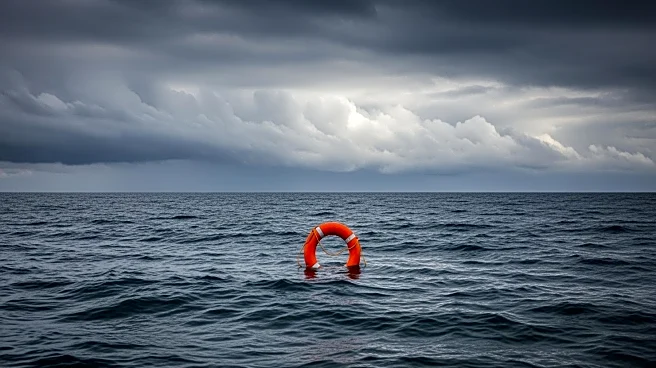What's Happening?
A migrant boat carrying approximately 35 individuals capsized in the central Mediterranean, resulting in one confirmed death and leaving two dozen people missing. The Italian Coast Guard conducted a rescue
operation off the coast of Lampedusa Island, saving 11 migrants, including four unaccompanied children, and recovering the body of a pregnant woman. The boat had been at sea for two days before capsizing. In a separate incident, two migrants were found dead, and 14 others were in critical condition on a boat intercepted by Italian authorities. These events highlight the ongoing humanitarian crisis in the Mediterranean, where thousands of migrants risk their lives attempting to reach Europe.
Why It's Important?
The capsizing of the migrant boat underscores the perilous conditions faced by individuals fleeing conflict and poverty in search of safety and better opportunities. The central Mediterranean route remains one of the deadliest migration paths, with over 32,700 migrant deaths recorded since 2014. This tragedy highlights the urgent need for comprehensive international cooperation to address the root causes of migration and improve search and rescue operations. The situation also raises questions about the adequacy of current policies and the responsibility of European nations in providing safe passage and humanitarian assistance to migrants.
What's Next?
In response to the ongoing crisis, there may be increased calls for policy reforms and enhanced international collaboration to ensure the safety of migrants. European countries, along with international organizations, might explore new strategies to prevent such tragedies and provide support to affected individuals. The Italian government and EU authorities could face pressure to improve rescue operations and address the humanitarian needs of migrants. The broader implications for migration policy and international relations will likely be a topic of discussion among policymakers and humanitarian groups.









